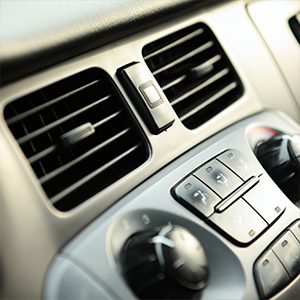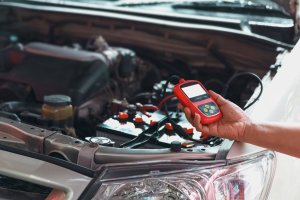Which Parts of the Car AC System Are Most Likely to Fail?
A functional air conditioning (AC) system is essential for comfort, especially in the extreme heat of places like Dubai. Over time, however, parts of the car’s AC system can wear out or malfunction, leading to reduced performance or complete failure. Understanding which components are prone to failure allows you to stay proactive and avoid costly breakdowns by getting your car AC repaired before it’s too late. In this article, we’ll take a closer look at the parts of the car AC system that are most likely to fail and how you can prevent breakdowns.

Compressor
The compressor is the heart of your car’s AC system. Its job is to compress and circulate refrigerant throughout the system, enabling the cooling process. If the compressor fails, the AC won’t blow cold air, or worse, it may stop blowing air altogether.
Common causes of compressor failure:
- Inactivity: If the AC system isn’t used for extended periods, internal seals can dry out, leading to leaks or a seized compressor.
- Low refrigerant levels: The system relies on the refrigerant to lubricate the compressor. If refrigerant levels are too low due to a leak, the compressor may overheat or become damaged.
- Electrical issues: Faulty wiring, blown fuses, or poor electrical connections can prevent the compressor from turning on, causing the AC system to stop working.
Condenser
The condenser is crucial for converting the refrigerant from a high-pressure gas into a liquid by cooling it. It’s usually located at the front of the vehicle, where it can receive sufficient airflow to aid in the cooling process.
Common causes of condenser failure:
- Clogs and blockages: Dirt, debris, and road particles can clog the condenser, reducing its cooling efficiency and overloading the system.
- Leaks: Impact from road debris can cause cracks or punctures in the condenser, leading to refrigerant leaks and decreased cooling.
- Overheating: A faulty fan or restricted airflow can cause the condenser to overheat, making it difficult to cool the refrigerant effectively.
Evaporator
The evaporator is responsible for absorbing heat from the cabin air, cooling the interior of the vehicle. It’s typically located behind the dashboard, protecting it from most external damage, but it can still be affected by long-term wear.
Common causes of evaporator failure:
- Refrigerant leaks: Over time, small cracks may develop in the evaporator, leading to refrigerant loss and reduced cooling performance.
- Corrosion: Moisture buildup can cause the evaporator to corrode, especially in humid climates. This reduces its ability to cool the air and can eventually lead to failure.
Expansion Valve or Orifice Tube
The expansion valve (or orifice tube in some vehicles) controls how much refrigerant flows into the evaporator, where the refrigerant expands and cools the air before it’s circulated through the cabin. Most cars have either an expansion valve or an orifice tube, but not both.
Common causes of expansion valve/orifice tube failure:
- Blockages: Dirt or contaminants in the system can block the valve or tube, reducing the flow of refrigerant and preventing proper cooling.
- Valve sticking: If the valve becomes stuck open or closed, it can either allow too much refrigerant into the evaporator (causing the system to freeze) or too little (resulting in warm air being blown into the cabin).

Conclusion
The extreme heat in Dubai and similar environments can accelerate wear on your car’s AC system. By staying proactive and getting regular car AC repair in Dubai, you can prevent many of the common issues that lead to AC failure. Keep an eye on key components like the compressor, condenser, evaporator, and expansion valve, and address any problems promptly to avoid costly repairs and ensure your car stays cool and comfortable, no matter how hot it gets outside.
Most Popular:

Common Brake Problems in MINI Vehicles and How to Solve Them
Reliable Car Service in Dubai

Most Common Car Issues Fixed in Dubai: Expert Insights from Al Quoz Garages
Common Car Issues Fixed

Why Professional Car Repair in Al Quoz Beats DIY | Max Garage
Reliable Car Service in Dubai



